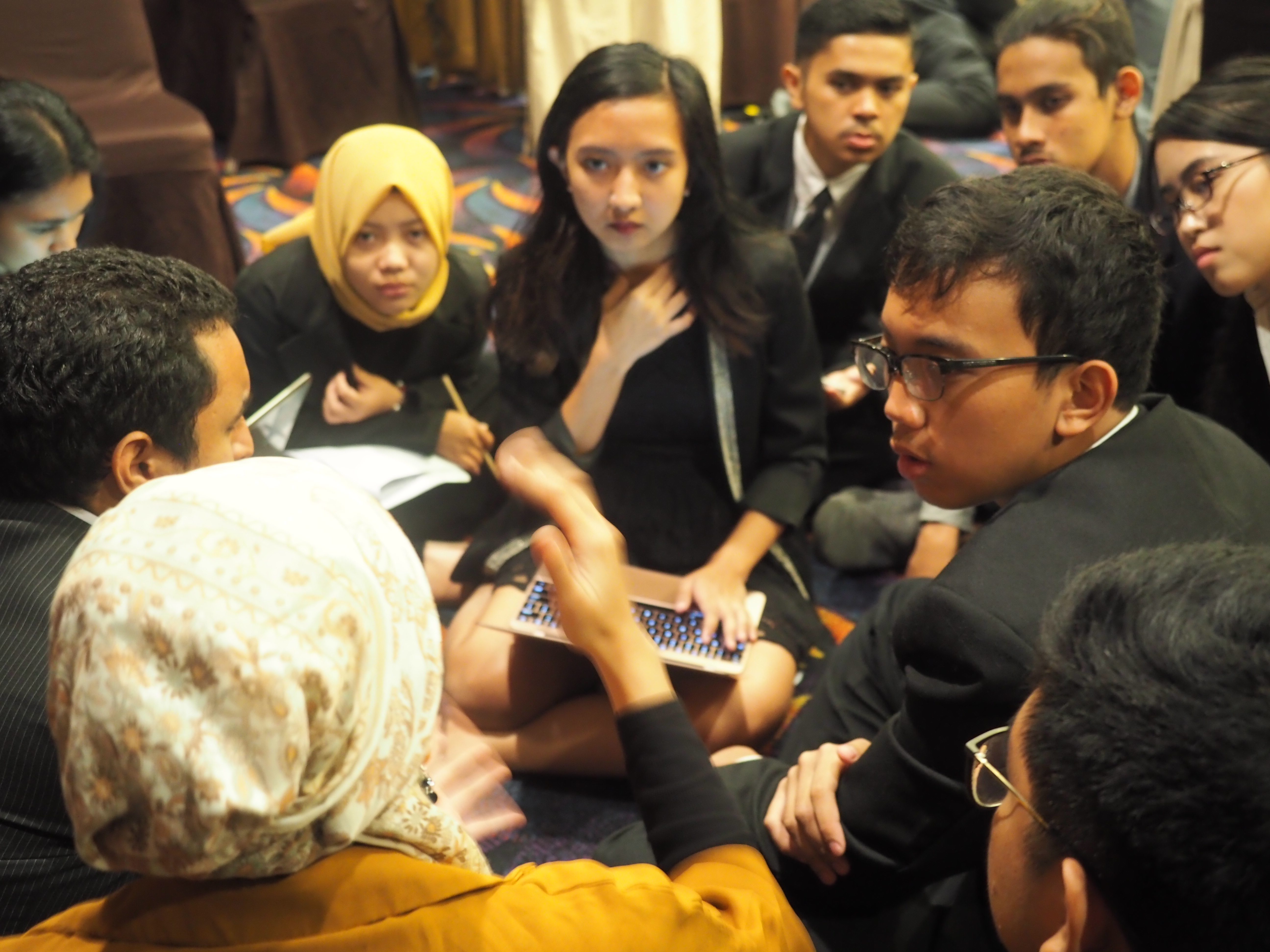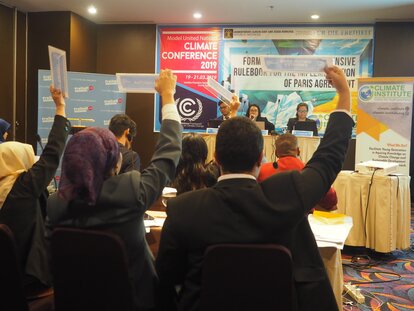Perubahan Iklim
Practicing the Art of Diplomacy at the MUN Climate Conference 2019

The historical Paris Agreement will soon enter into force and require an operational standardized guideline to convert pledges into action. At the last COP 24 in Katowice, countries have agreed on a rulebook to implement the Paris Agreement in a reliable and transparent manner. Nevertheless, the rulebook was perceived as a result of a “take and give” diplomacy that doesn’t reflect the urgency of ambitious climate actions. Dazzling climate loopholes are still present in the agreement, which has the potential to undermine national pledges that have been made to curb global warming.

Taking into consideration the incompleteness of the rulebook, FNF Indonesia and Climate Institute decided to conduct a Model United Nations Climate Conference with the purpose to provide a free platform for students in Indonesia to learn about diplomacy and to share perspectives in opinions with the theme of climate change. Therein, students are challenged to reformulate a comprehensive Paris Agreement rulebook that can overcome existing climate loopholes and adopt more ambitious requirements to reduce greenhouse gases emissions. In regards to this matter, the committee expected several aspects to be included in the rulebook in order for a delegate to achieve an outstanding valuation:
1. To accommodate key findings of the latest IPCC report, which recommends limiting global warming to 1.5 degrees. Meeting this target would require drastic emissions reduction measures, otherwise rising global temperature would exacerbate climate change impacts such as coral bleaching, extreme weather, loss of ecosystems, rising sea levels and many more other related environmental risks.
2. Establishing a standardized reporting guideline for assessing progress towards emission-reductions goals and calculating accountable emission goal at the end of the goal period. A requirement for this reporting is a common accounting methodology in inventorying greenhouse gas emissions.
3. To take into account different circumstances as well as the capacities of countries in implementing the Paris Agreement. The extent of flexibility given to developing countries should be determine and describe in a thorough way. A question that is relevant in dealing with this particular matter: How will governments ensure that the rulebook is sufficiently dynamic to reflect countries’ changing circumstances over time?
4. Delegates in terms of carbon credit issuance should propose a detailed guide on market mechanism as well as how to generate carbon credits. A preventive mechanism to avoid double issuance and double claiming of carbon credits should be available in fulfilling effectively every NDC goals (National Determined Contribution Goals).

All students are assigned to a specific country and are known as delegates. Through this simulation, they will try to represent their assigned country’s national interest in formulating the required rulebook. During the moderated and unmoderated caucus, an exchange of constructive thoughts took place and resulted in two determined draft resolutions, which accommodated nearly all essential desired valuations aspects.

Once all draft resolutions have been presented and all amendments have been made, the chair instructed to the delegate to raise a motion to vote. However, neither resolutions managed to pass on this event due to a failure in achieving the two-third majority-voting quota. The failure in passing a draft resolution is actually reflecting the reality of a functioning democracy trying to find a solution that must be accepted by the majority through a transparent voting mechanism. In that respect sometimes, delegates agree on a set of rules, but sometimes delegate also disagree, because the outcome will make their own country worse off than better off.
Nevertheless, we have to bear in mind that the current climate problems are rapidly faster than the solutions that we have at the moment. Therefore is inevitable to put vested interest on the sideline in order to build and maintain a safe house on the cliff.